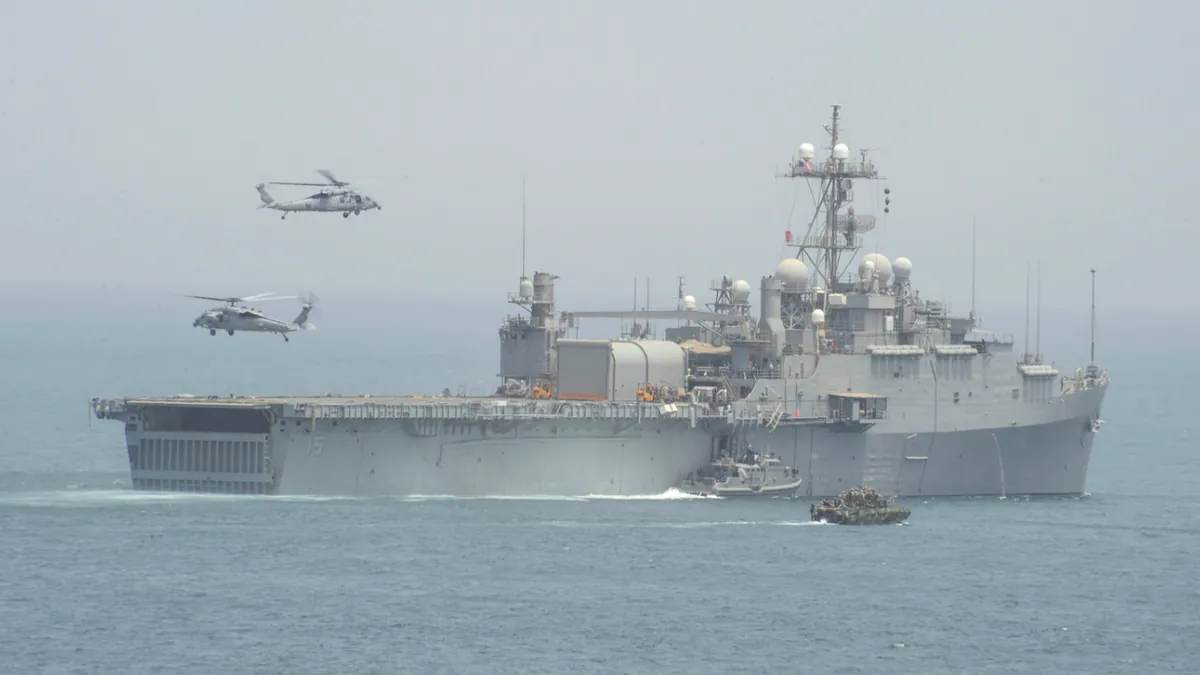Suspected Houthi Attacks Escalate Tensions in Strategic Red Sea Strait
Three suspected Houthi attacks targeted a ship in the Bab el-Mandeb Strait, including one thwarted by private security. The incidents highlight ongoing threats to global shipping amid regional tensions.

In a series of events highlighting the ongoing tensions in the Red Sea region, three suspected attacks by Yemen's Houthi rebels targeted a vessel traversing the strategic Bab el-Mandeb Strait. This narrow waterway, connecting the Gulf of Aden to the Red Sea, is a crucial route for global maritime trade.
The incidents, occurring over a 24-hour period ending August 2, 2024, mark a continuation of the Houthis' campaign against shipping in the area. This campaign, which began in response to the Israel-Hamas conflict in Gaza, has significantly disrupted the flow of goods through one of the world's busiest shipping lanes.
The first attack involved a rocket-propelled grenade (RPG) launched from small craft manned by individuals in distinctive attire. The second assault saw a missile detonating near the vessel, while the third involved a drone boat loaded with explosives. In a notable development, private security personnel aboard the targeted ship successfully neutralized the drone threat.

These attacks follow a brief lull in Houthi activities, which resumed after recent geopolitical developments in the region. The Houthis, part of Iran's self-proclaimed "Axis of Resistance," have targeted over 70 vessels since the outbreak of the Israel-Hamas war on October 7, 2023. Their actions have resulted in four maritime fatalities and the sinking of two ships.
The Houthi campaign has had far-reaching consequences, disrupting approximately $1 trillion worth of annual trade through the region. Moreover, it has precipitated the most intense naval combat operations for the U.S. Navy since World War II, underscoring the severity of the situation.
In response to these escalating threats, the United States has bolstered its military presence in the area. On August 8, 2024, U.S. Air Force F-22 Raptor fighter jets were deployed to the Middle East from a base in the United Kingdom. These fifth-generation stealth aircraft are intended to address threats posed by Iran and its affiliated groups.
The U.S. Central Command (CENTCOM) has also taken proactive measures, destroying two Houthi anti-ship cruise missiles, a ground control station, and another drone boat in the Red Sea. These actions demonstrate the ongoing efforts to maintain maritime security in this vital waterway.
The situation in the Red Sea and Gulf of Aden remains volatile, with potential implications for global trade and regional stability. As international forces work to counter these threats, the maritime community remains on high alert, navigating through increasingly perilous waters.
"The operations are ongoing — our operations toward occupied Palestine to target the Israeli enemy, our operations at sea, the inevitable forthcoming response, as well as coordination with the axis in any joint operations."
This statement underscores the Houthis' commitment to their campaign and hints at potential coordination with other regional actors, raising concerns about a wider conflict in the Middle East.
As the situation continues to evolve, the international community watches closely, aware that the events unfolding in this strategic waterway have implications far beyond its shores.


































